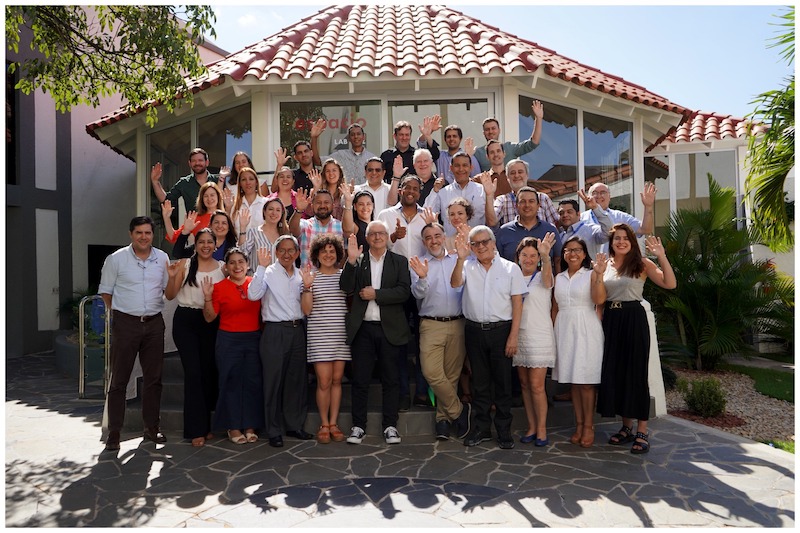After three days of intense discussion, exchange of experiences and development of new skills, the technical and communication staff of the eight projects in the Energy Efficiency sector of the Euroclima program will focus their efforts on scaling up the scope and results of their initiatives.
April 27, 2023. Santa Cruz de la Sierra, Bolivia. The Training Center of the Spanish Agency for International Development Cooperation (AECID) in Santa Cruz de la Sierra was the main attraction for energy in a sectoral meeting that brought together, for the first time, the technical and communication teams of 10 countries on April 19, 20 and 21.
Led by the Spanish Agency for International Development Cooperation (AECID) and the French Development Agency (AFD) -implementing agencies of the Energy Efficiency sector-, the meeting provided an opportunity to draw learned lessons and best practices from projects to be completed, ensuring the transfer of knowledge and learning by projects that are in early stages of implementation. Synergies and collaborative strategies for the coordination of projects related to knowledge management and communication were discussed, which will be reflected in a document to be disseminated later this year.
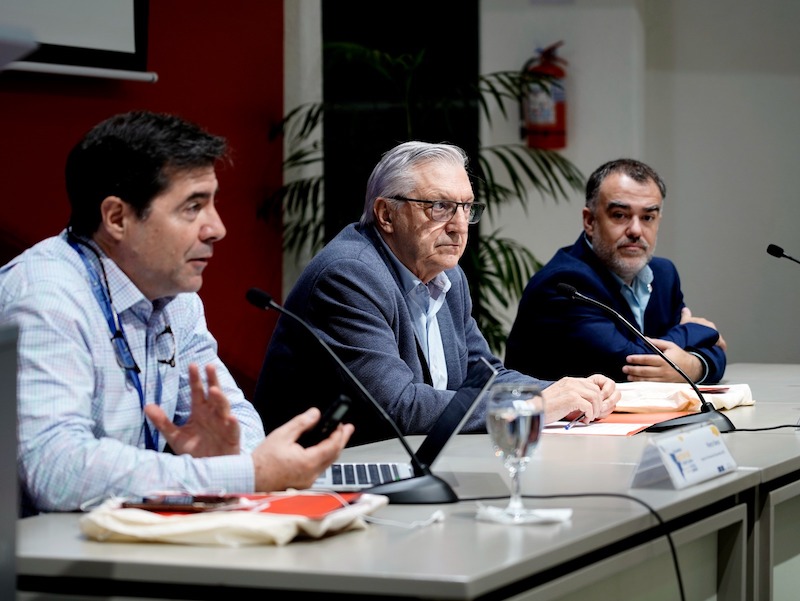
During the opening of the meeting, Marco Varea, coordinator of the Euroclima program for the AFD, stressed that, in the field of public policies, the common good is sought, which entails a collective coordination by the institutions that manage energy efficiency in Latin American countries. On the other hand, Sergio Garrido, head of AECID projects, stressed that "this meeting is an opportunity to review the scalability of projects and understand the importance of communicating climate change."
The opening ceremony was also attended by Ignacio Ayala, Director of the AECID Training Center in Santa Cruz, and Andrew Scyner, Euroclima Program Manager
Energy efficiency on the road to decarbonization.
During the first working day, the technical teams of the projects had a space to present their main advances and results. These presentations were vital to establish a common basis for the exchange of knowledge, identification of meeting points and articulation of potential alliances to expand the results of the Euroclima program within the framework of energy efficiency.
In this first block, the objectives, progress, results, and impacts of the projects were analysed with a gender perspective, within the framework of the United Nations Sustainable Development Goals (SDGs) and the Nationally Determined Contributions (NDCs) of the Paris Agreement.
The conference also included the participation of ECLAC expert Jeannette Sanchez, who shared the presentation Trends in Energy Efficiency and the path towards decarbonization by 2030, where she highlighted "the challenge that remains for us as institutions that generate information and knowledge is to deepen and demonstrate the link between energy and gender for the construction of inclusive public policies. A real energy transition must consider aspects such as energy security and resilience of populations living in poverty and energy insecurity".
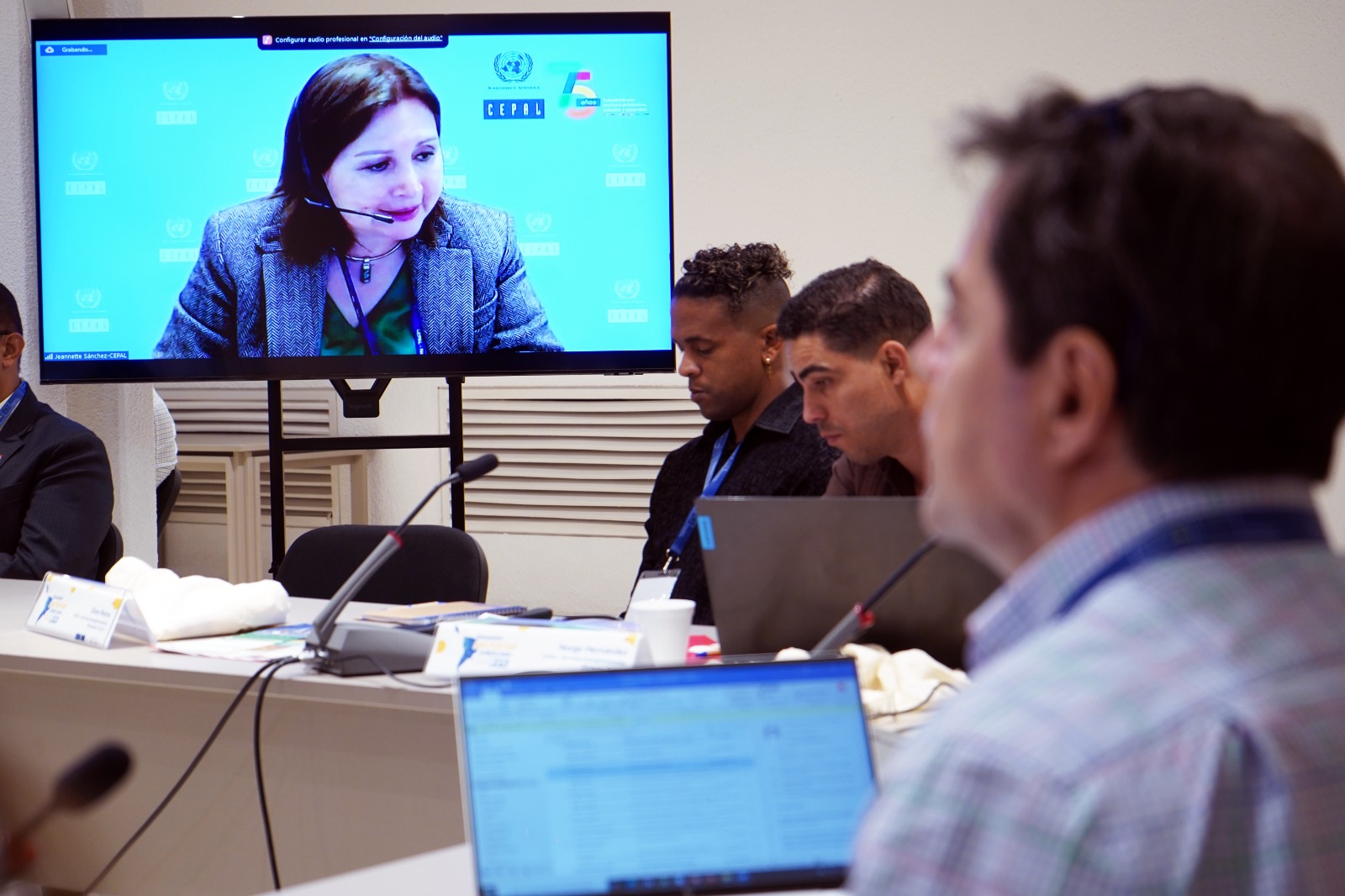
Communication as a transversal axis to promote energy efficiency.
It is well known that communication plays a transcendental role in achieving synergies, replicability, and financing of climate action. That is why, as part of the meeting, and during the second day of exchange, a joint space was proposed so that the technical and communication areas could exchange knowledge and develop new skills to strengthen the visibility and generation of inputs for the Communication and Visibility (C&V) of the Energy Efficiency sector.
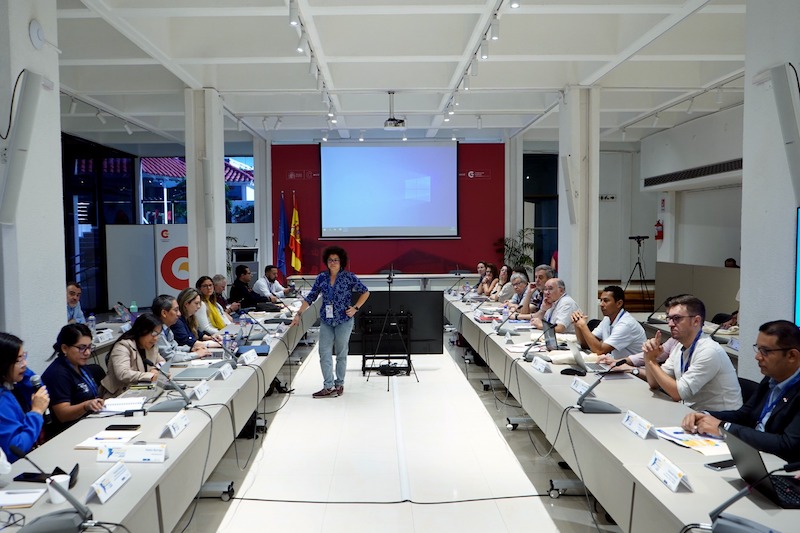
To ensure compliance with the communication standards, guidelines and objectives of the Euroclima program, the first part of the joint day was attended by the program's Communication and Visibility team, who shared the strategic vision for the new stage and reaffirmed their commitment to accompany the initiatives and communication efforts of the projects.
This was followed by a presentation full of energy and practical advice on how to communicate technical information to a general audience. A presentation that opened the discussion on the importance of analysing and understanding the audiences to build bridges that facilitate the exchange and understanding of issues related to energy efficiency. The presentation was given by Ana Muñoz and Fernando Torrecilla, communicators from the Energy, Environmental and Technological Research Center (CIEMAT) of Spain.
And to finish with the presentations of this joint day, a theoretical and practical training was held to create photographs and videos with a storytelling perspective.
The technical teams and communicators learned key aspects for recording quality audio-visual material to reflect the impact of their projects through life stories, gender perspective, and success stories.
As part of this workshop, a decalogue of recommendations for taking photos and videos was provided. In addition, teams developed a video summary of the sectoral meeting to apply the knowledge acquired.
In the afternoon, they visited the Schlumberger power plant led by Bruecken Consult Bolivia S.R.L., to learn about their photovoltaic power generation systems that position their company as one of the pioneers in the energy efficiency sector in the country.
Learned lessons and knowledge management.
The last day of work provided an opportunity for the participants to exchange learned lessons and present the materials in different thematic areas: 1. Training, 2. Most of the documents produced by the projects include a gender perspective.
Through group dynamics, the teams also identified strengths, opportunities, weaknesses, and threats presented throughout the implementation process of their projects, which were then socialized among all participants in order to reach common ground and thus propose the route to follow during the coming months until the closure of the projects, enhancing synergies, strategic alliances and joint work for the benefit of the sector, the program and climate action.
Capacity building in communication.
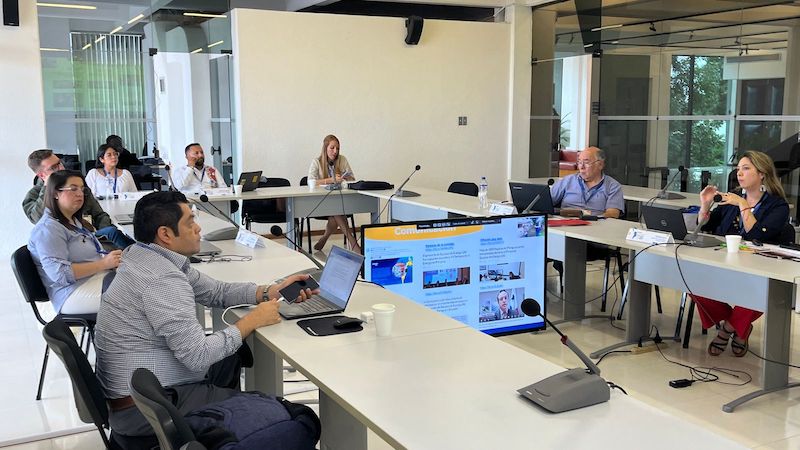
In parallel to the technical work sessions, the people responsible for communication in the eight projects participated in training sessions aimed at reinforcing their knowledge on topics of common interest related to C&C, to continue strengthening, articulating and unifying the communications of the results of the projects’ implementation in their territories.
With the participation of renowned national and international facilitators, the communicators were trained on topics such as "climate change: how to address the issue and transfer it to the media agenda"; "visual resources for climate communication, creativity, graphic design, visual construction and creative thinking"; "new communication trends in social networks"; "how to create content for podcast platforms" and "communication guidelines, visibility and knowledge management of Euroclima".
The meeting of communicators also included opportunities to exchange experiences, success stories, learned lessons, and milestones identified in the projects during their execution stages.
In addition, work was done on the construction of a network of communication synergies that seeks to strengthen the sense of belonging to the sector, to lead and execute joint communication and visibility actions to broaden the scope of the projects' results.
About the Energy Efficiency sector.
The objective of this sector is to contribute to climate change mitigation and adaptation through the implementation of energy efficiency measures, in accordance with the Nationally Determined Contributions (NDCs) assumed by the countries under the Paris Agreement. The actions financed under this sector seek to support countries in their efforts to mitigate and adapt to climate change in the energy sector. The projects are aimed at identifying and financing initiatives that help strengthen capacities, institutions, public policy regulatory frameworks and monitoring systems that promote energy efficiency.
About EUROCLIMA
EUROCLIMA is a program funded by the European Union and co-financed by the German federal government through the Federal Ministry for Economic Cooperation and Development (BMZ), as well as by the governments of France and Spain through the Ministry of Foreign Affairs, European Union and Cooperation.
The Program's mission is to reduce the impact of climate change and its effects in 33 countries in Latin America and the Caribbean by promoting mitigation, adaptation, resilience, and climate investment. For this, it is implemented according to the "Spirit of Team Europe" under the synergistic work of seven agencies: Spanish Agency for International Development Cooperation (AECID), French Development Agency (AFD); Economic Commission for Latin America and the Caribbean (ECLAC); Expertise France (EF); International and Ibero-American Foundation for Administration and Public Policy (FIIAPP); Deutsche Gesellschaft für Internationale Zusammenarbeit (GIZ) GmbH and the UN Environment Program.

